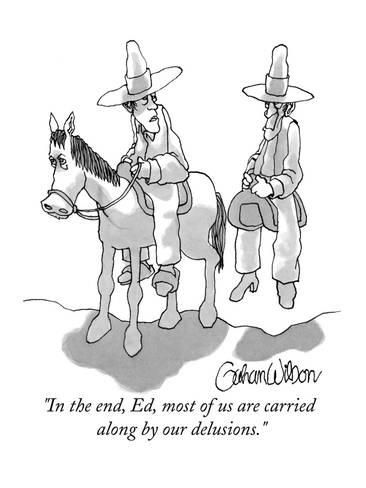Ahah! Got it …
- God inspired the author(s) of Genesis to write it.
- God knows what happened, so why couldn’t he have “inspired” a better version?
Look on the bright side: you weren’t raised in an orthodox Moslem household and taught to believe that every word of the Qur’an is literally a word given to Mohammad by Allah via the Archangel Gabriel, and where turning your back on your childhood faith can be severely punished.
- Personally, I kinda think the part in Genesis where the serpent is punished for his role in the fall is a rather fun way to explain to a little kid why snakes are legless reptiles and differ from four-legged reptiles; kind of like an ancient “folk animal tale” for kids.
- re: female pain during childbirth first started after the fall. Given that childbirth before the fall was not an issue since Eve didn’t have her first kid until after she was banished from the Garden, and the fact that some seriously creative imagination is needed to come up with an anatomy that a bipedal human female would have to have in order to carry an increasingly heavy baby during pregnancy that could (a) come to term inside the womb and (b) wouldn’t just fall out on the ground if female anatomy were such that childbirth was always “pain free”.
Are you sure your beef with the Bible isn’t some sort of payback for the misfortune of being born into a deeply religious family? Rattling Christian cages to watch the dogs bark, so to speak?
Don’t get me wrong: far be it from me to try to be the one to teach you how to treat dogs, but–writing as a Christian who has been the beneficiary of the Christian faith of others who loved me more than I deserved, I don’t share your beef, if that is your beef.
I am intrigued though. Correct me where I go wrong.
- If God is the all-knowing, benevolent being that Christians make Him out to be, why didn’t he come up with better Christians to argue His case for Him and to represent His interests here on Earth?
- Sorry. I have guesses, but I don’t have solid, evidence-based answers, and you want persuasive answers. But I do have a proposal.
- Let’s assume for a moment that there is no God and that all theists, in general, and Christian theists, in particular, have been promoting and spreading horse-manure for far too long and you want to do your part and serve your fellow-man by putting an end to the horse-manure factories that have been making a mess of things so long.
- If so, it would seem to me that there’s a better way to go about it, especially since you’re a determinist and reject the feeble concept of free will.
